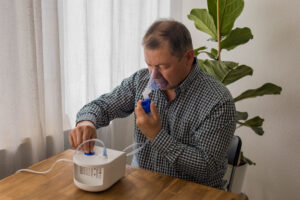Social Security Disability for Severe Asthma: Can Your Condition Qualify in 2025?
Asthma is a common breathing condition, but for some, it’s far more than just occasional wheezing. When asthma is severe and ongoing, it can be truly disabling, making everyday activities, let alone holding a job, impossible. Many people successfully manage their asthma, which often leads to confusion about when it’s severe enough to qualify for disability benefits. The unpredictable nature of severe asthma attacks and constant symptoms can really disrupt your ability to work.
This guide will explain how the Social Security Administration (SSA) looks at severe asthma for disability claims in 2025.
Understanding Social Security’s Disability Rules for Asthma
Quick Takeaway: Yes, you can get Social Security Disability (SSDI or SSI) for asthma if your condition is severe enough to meet the SSA’s strict definition of disability. This generally means your asthma must severely limit your ability to work and be expected to last at least 12 months or result in death.
To be approved for Social Security disability benefits, whether through Social Security Disability Insurance (SSDI) or Supplemental Security Income (SSI), your asthma must meet the SSA’s tough rules for what counts as a disability.
SSA’s General Disability Definition
The SSA primarily determines disability based on whether your medical condition prevents you from doing “Substantial Gainful Activity (SGA).” For 2025, if you’re not blind, you generally can’t earn more than $1,620 per month (according to the Social Security Administration) and still be considered disabled. Also, your condition must be expected to last continuously for at least 12 months or result in death.
For asthma, this means that while simply having a diagnosis is a start, the key factor is how severe your condition is and how it’s documented to impact your ability to consistently and reliably perform work tasks. Occasional asthma attacks that are quickly brought under control usually don’t meet this standard.

Asthma Under the “Blue Book” (Listing 3.03 – Asthma)
The SSA’s “Listing of Impairments,” often called the “Blue Book,” describes specific medical conditions and the exact criteria you must meet for automatic disability approval. Asthma is specifically listed under Listing 3.03 – Asthma, which falls under the larger category of Respiratory Disorders.
Meeting the specific requirements in this listing is considered the most direct way to get approved for disability benefits due to asthma.
Medical Criteria for Asthma Disability (Listing 3.03)
For an asthma claim, the SSA mainly looks for clear medical proof showing both continuous severe airway blockage and frequent, severe flare-ups, even with proper treatment.
First Requirement: Spirometry (FEV1 and FVC)
Similar to Chronic Obstructive Pulmonary Disease (COPD), lung function tests, especially spirometry, are crucial for an asthma disability claim. The SSA reviews your Forced Expiratory Volume in one second (FEV1) and Forced Vital Capacity (FVC) measurements.
The FEV1 measures how much air you can forcefully breathe out in one second. For asthma, the SSA looks for FEV1 values that are consistently low, showing ongoing, severe airway blockage, even after you’ve taken appropriate medication.
Second Requirement: Recurrent Exacerbations (Attacks)
If your lung function tests meet the spirometry values, you must also show frequent and disabling attacks that require hospitalization.
Under this second requirement, the SSA looks for documented proof of asthma flare-ups (attacks) requiring:
- At least 3 hospitalizations within a 12-month period.
- Each hospitalization must last at least 48 hours, which includes time spent in an emergency department right before admission for symptom control.
- Crucially, each hospitalization must be at least 30 days apart (from the start of the previous hospitalization).
The regular occurrence of such severe attacks may indicate a level of impairment that interferes with your ability to work.
Key to Your Asthma Claim: Comprehensive medical records detailing the frequency, severity, and treatment of your asthma exacerbations (especially hospitalizations) are vital.
You can easily keep track of your medical journey with our complimentary printable Personal Health Journals.

Other Contributing Factors (Beyond the Listing)
Even if your asthma doesn’t precisely meet the criteria of Listing 3.03, the SSA will consider the overall impact of your condition and any other health problems you have on your ability to work.
Conditions often seen with severe asthma, such as chronic bronchitis, emphysema, severe gastroesophageal reflux disease (GERD), or chronic sinusitis, can significantly worsen breathing problems and your overall ability to function.
Furthermore, the impact of environmental triggers (like dust, fumes, chemicals, pet dander, or extreme temperatures) in various workplaces can severely limit job options for people with severe asthma. Your inability to tolerate these common workplace irritants can play a significant role in the SSA’s overall assessment of your capacity to work.
What if Your Asthma Doesn’t “Meet a Listing”? (RFC Assessment)
Many individuals with severe asthma may not precisely meet the strict FEV1 values or the exact hospitalization criteria of Listing 3.03, but their condition still prevents them from working. In these cases, the SSA will evaluate your Residual Functional Capacity (RFC).
Residual Functional Capacity (RFC) Assessment:
If your asthma doesn’t strictly meet Listing 3.03, the SSA will assess your RFC. This is a detailed evaluation of your physical and mental limitations that directly result from your asthma. The RFC determines what you can still do in a work setting despite your medical condition.

Specific Limitations Caused by Asthma:
The RFC assessment will consider how your asthma symptoms affect your ability to perform various work-related tasks, including:
- Frequent need for nebulizer treatments or inhaler use: This can interrupt work tasks and make consistent employment difficult.
- Inability to tolerate environmental irritants: Many workplaces contain dust, fumes, chemicals, allergens, or experience temperature extremes that can trigger severe asthma attacks, making it impossible to work in such environments.
- Fatigue and shortness of breath: These ongoing symptoms can significantly limit physical activity, making it hard to lift, stand, walk, or do tasks requiring sustained effort.
- Cognitive issues: Chronic low oxygen levels (hypoxia) or side effects from medications (e.g., steroids) can lead to “brain fog,” difficulty concentrating, and impaired memory, affecting the mental demands of a job.
- Absences from work: Frequent absences due to asthma flare-ups, doctor’s appointments, or recovery time after attacks can make it impossible for you to keep a regular job.
Vocational Expert (VE) Testimony:
In some cases, especially during the hearing stage of an appeal, the SSA might consult a Vocational Expert (VE). A VE is a specialist who provides unbiased information about job requirements and the availability of work in the national economy. They will consider your RFC, age, education, and past work experience to determine if any jobs exist that you can realistically perform given your specific asthma-related limitations.
If the VE concludes that no jobs exist that you can realistically perform, your claim will likely be approved.
Building a Strong Asthma Disability Case (Essential Steps)
A strong and well-documented medical record is the foundation of a successful asthma disability claim.
Gathering Comprehensive Medical Evidence:
Make sure you collect and provide the following crucial medical evidence:
- Spirometry test results: Include both pre- and post-bronchodilator readings with dates and values. Consistent results over time can show the ongoing nature of your airway blockage.
- Records of all hospitalizations, emergency room visits, and urgent care visits for asthma flare-ups: These records should include admission and discharge summaries, doctor’s notes detailing symptoms, treatments given, and how long you stayed.
- Detailed doctor’s notes: Especially from pulmonologists or allergists who are treating your asthma. These notes should thoroughly document the frequency and severity of your asthma attacks, your ongoing symptoms, all prescribed treatments (and whether they worked or not), and, most importantly, clear statements about your functional limitations caused by asthma.
- Medication lists: A complete list of all medications prescribed for your asthma, including controller medications, rescue inhalers, oral steroids, and any other relevant treatments. Note any side effects that impact your functioning.
- Records of peak flow readings: If you regularly track your peak flow, provide these records as they can show daily variations and severity.
- Imaging (chest X-rays, CT scans): If these have been done and show structural changes or complications related to your asthma.
While challenging, it is possible to get Social Security disability benefits for severe, debilitating asthma. The key lies in understanding the SSA’s strict medical criteria, especially those in Listing 3.03 or through a thorough Residual Functional Capacity assessment. Building a strong case with compelling, objective medical evidence is paramount.
We Can Help You Navigate Your SSDI Journey!
At Trajector Disability, our team of experienced Social Security disability advocates understands the challenges individuals with mental health conditions face when applying for SSDI. We can help you navigate this process!
FAQs:
What medical evidence is most important when applying for Social Security Disability for asthma?
The most crucial medical evidence includes comprehensive spirometry test results (FEV1 and FVC), records of all hospitalizations and emergency room visits for asthma flare-ups, and detailed notes from your treating pulmonologists or allergists that document the severity, frequency, and impact of your symptoms on your daily functioning and ability to work.
Can I qualify for Social Security Disability for asthma if my lung function tests are normal but I still have frequent, severe attacks?
Yes, you may still qualify. While low lung function is a primary criterion, the SSA also considers recurrent exacerbations. If, for example, you have had at least three hospitalizations (each lasting 48+ hours and at least 30 days apart) for asthma flare-ups within a 12-month period, you may be able to show that you’d be unable to sustain a job because your residual functional capacity (RFC) is not conducive to full-time work.
How does the SSA consider environmental triggers and other co-occurring conditions in an asthma disability claim?
The SSA will consider the impact of environmental triggers common in workplaces (e.g., dust, fumes, allergens, temperature extremes) on your ability to work. Additionally, co-occurring conditions often seen with severe asthma, such as chronic bronchitis, emphysema, GERD, or chronic sinusitis, will be factored into the overall assessment of your functional limitations and ability to perform work tasks.


